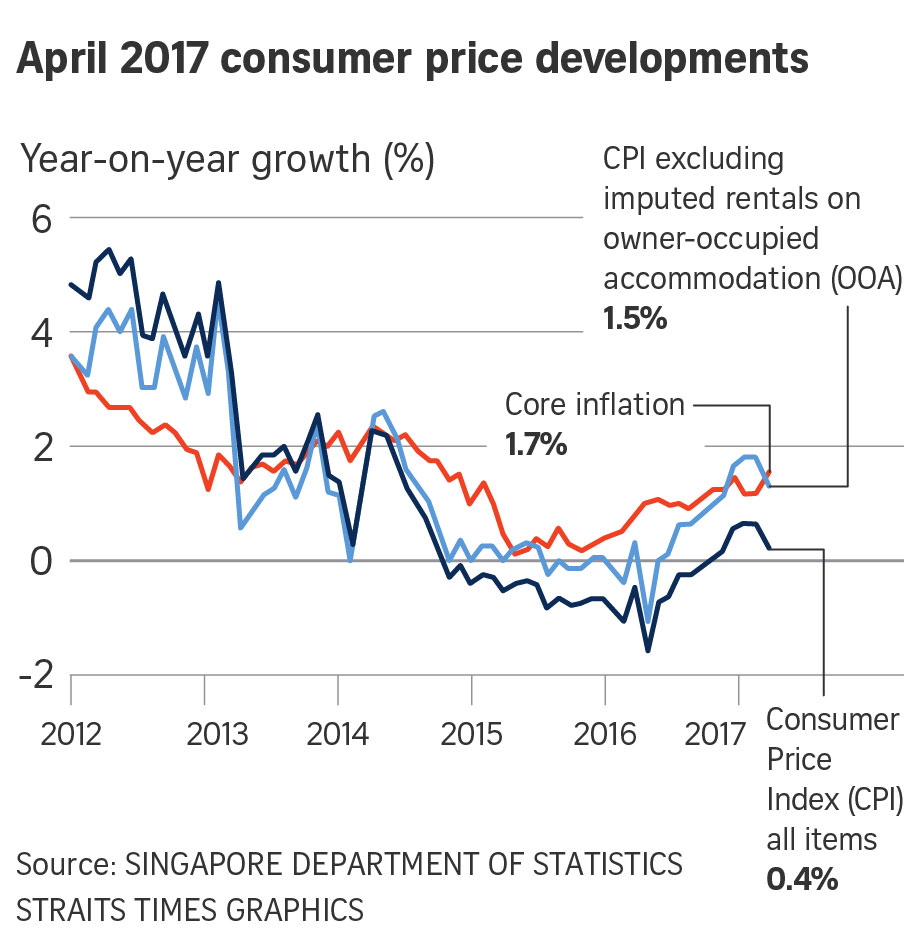SINGAPORE - Headline or all-items inflation in Singapore eased to 0.4 per cent in April from 0.7 per cent in March, mainly due to the timing of the Government's disbursement of service and conservancy charge (S&CC) rebates.
Core inflation, which reflects average daily consumption patterns, rose to 1.7 per cent in April from 1.2 per cent in March as electricity and gas prices rose.
There was an 18.7 per cent increase in the cost of electricity and gas in April, as compared to 4.2 per cent in March. This in turn reflected a steeper increase in electricity tariffs from the same period a year ago, on the back of higher global oil prices.
Private road transport inflation also inched up to 7 per cent from 6.9 per cent in March, owing to the faster pace of increase in car and petrol prices.
Services inflation edged up to 1.7 per cent in April from 1.6 per cent in March, largely on account of higher telecommunications services fees, following price declines in the previous month.
Meanwhile, food inflation was stable at 1.3 per cent in April, as the rise in non-cooked food inflation was offset by the smaller increase in the prices of prepared meals.

External inflationary pressures have picked up amid a turnaround in global commodity markets, the Ministry of Trade and Industry and the Monetary Authority of Singapore said in a statement.
"Global oil prices have risen from their trough in the previous year, and are likely to average higher in 2017, although upward pressures would be capped by elevated inventories as well as rising US crude oil production," they noted.
Administrative price adjustments, such as an increase in water prices and S&CC fees, will also contribute to a temporary increase in inflation this year.
However, domestic sources of inflation remain relatively muted overall, they said.
"Conditions in the labour market have slackened, and this is expected to dampen underlying wage pressures, even as commercial and retail rents have continued to ease."
The subdued economic environment will also limit the extent to which businesses pass on higher costs to consumers, the MTI and MAS added.


